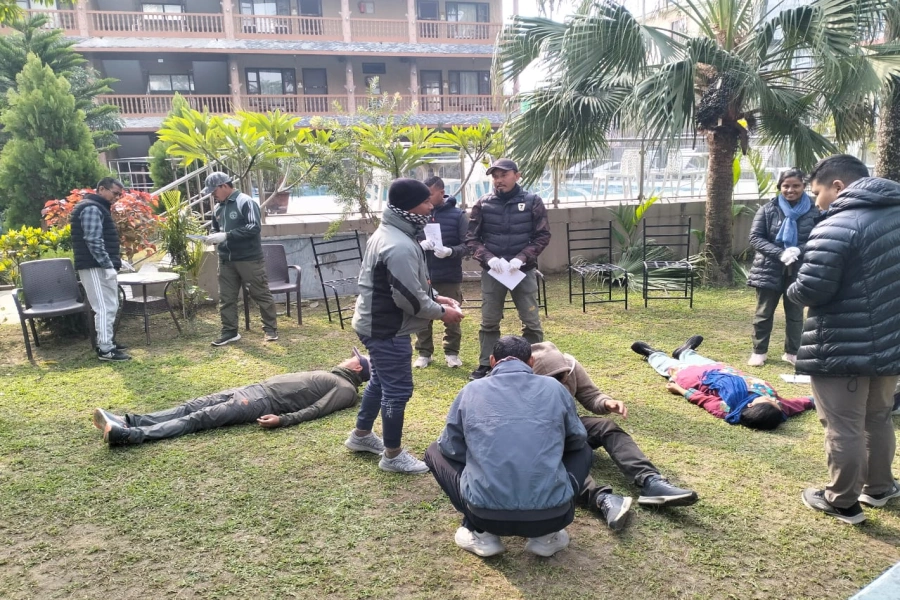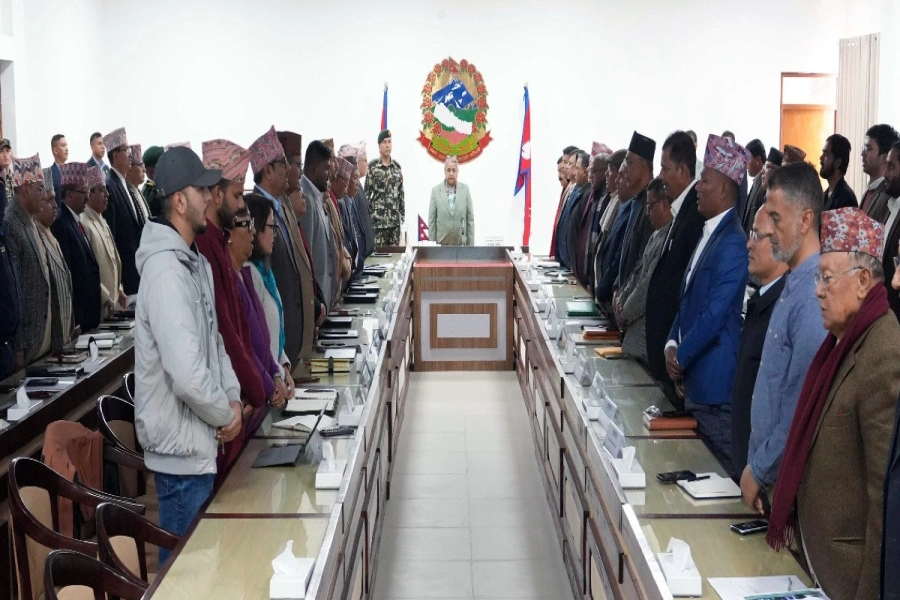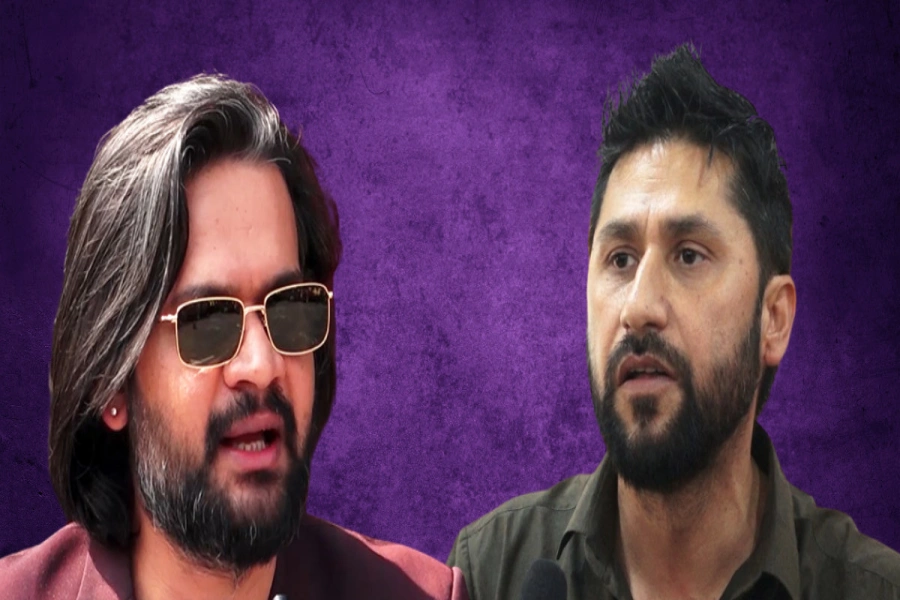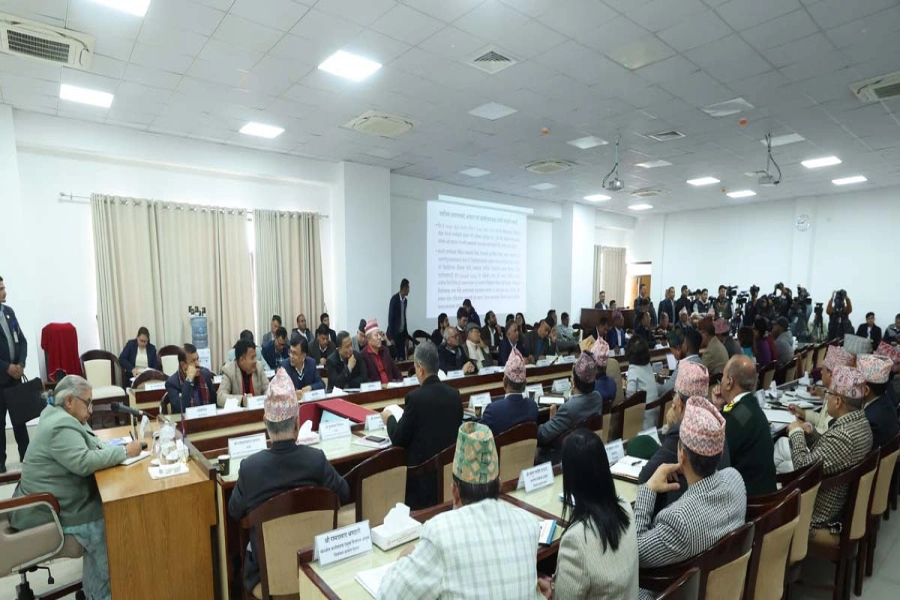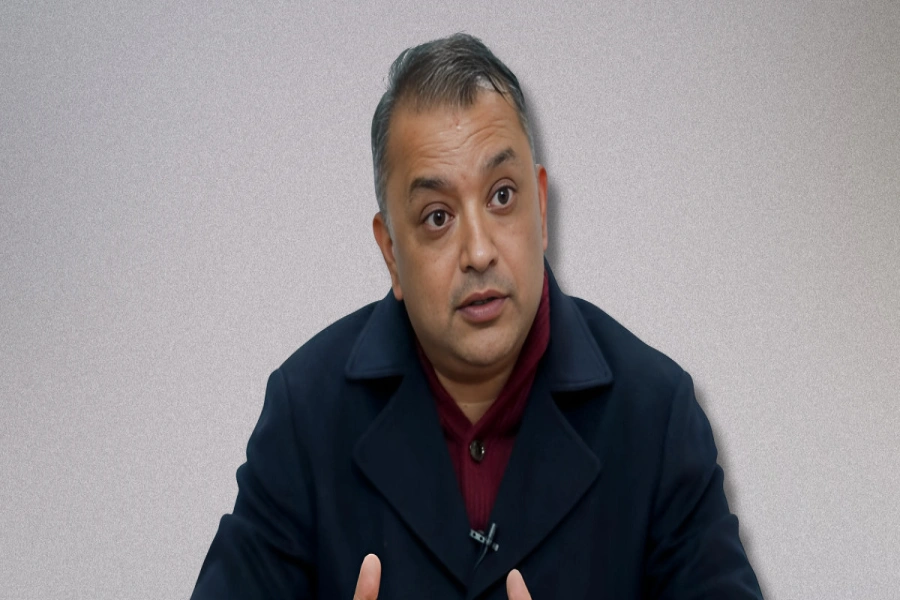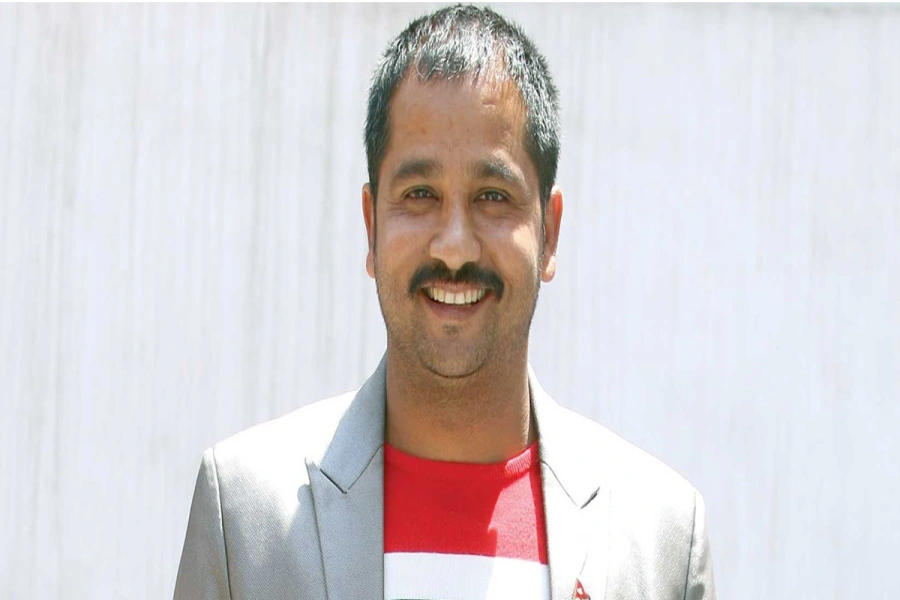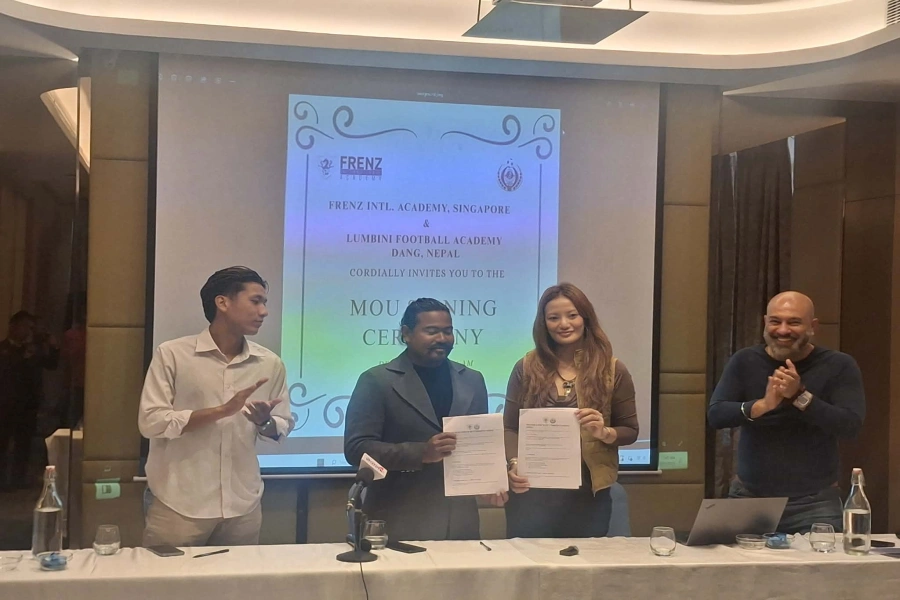I realized that the corrupt system has corrupted everyone—from the powerful people to commoners
I remember the conversation I had with a barber while I was in Nepal recently. “It just takes a second for a person to become rich but you have to be corrupt,” he said, but he decided not to become corrupt rich and therefore chose to become a barber so that he would serve all lower, middle and upper-class people.
How many people may be like him? Rich and educated people are seen to be more corrupt than ordinary ones. The educated people in the parliament, public service offices and other leading sectors are more corrupt than the barbers and the vegetable vendors. Perhaps because educated people get the opportunity to reach higher positions.
Revised interest rate corridor system introduced

I recall a story from my childhood when I was about seven, studying as a primary level student in Arutar, Gorkha. My village ‘Chanaute’ still today faces scarcity of drinking water and irrigation due to its steep land structure. We used to plant rice once a year with monsoon water. Then some local leaders of the time negotiated for an irrigation project. They promised that we would be able to plant crops at least twice a year once this project is completed. On this promise, they won the elections, managed to get the budget for irrigation but irrigation projects never saw light of the day. I came to know that the project had been completed only on paper.
I also came to know that the local leaders who negotiated for the irrigation project recorded it as successful project and furnished the evidence with photos. They had built a canal and took the photo of flowing water on it during the rainy season and presented it as irrigation project. In truth, there is no irrigation canal on the ground. If we had mechanism for effective monitoring and evaluation for the project, I would not be telling you this story today.
hen I was 16, I went to Gorkha district office to make citizenship certificate with my parent. Despite having all required documents, we had to face problems at every step. They would charge fees in the name of ‘service charge’ for everything. The system was made so complicated that we failed to get things done. Since, most people came to get their work done traveling long distance they would be ready even to bribe the officials. Spending the night at the district headquarters would cost them money anyway. Years later, when I had to get my passport made, I faced similar hurdles.
Once I went to the CDO office of Kathmandu for NGO registration. Then I was doing Bachelor’s degree and knew how corrupt the system is. There was someone beside the front desk who waited for officer to direct clients toward us. The officer pointed out to simple mistakes in organization’s constitution, to some words, lines or basic punctuation signs such as comma and full stops. I knew what they were asking for but why would I bribe them?
I visited the office several times to get the NGO registered but in vain. I lost hope and contacted some brokers. He demanded certain amount of money from me, and with that, my job was done within a moment. I became the victim of corruption once again.
You face troubles from public offices to public buses in Nepal. I was taking a bus ride. The bus was too crowded and yet it would stop to take in passengers from wherever they were. But when it came to dropping the passengers, the driver stopped at the only point convenient for him. I was dropped two steps farther from where I was supposed to get off. I argued with the driver. I threatened to report to the police. Instead of feeling guilty for what he did to me, he threatened me instead. Many other passengers felt that problem but they would not complain. Some people even asked me not to argue with the driver saying that this is how drivers are like.
I realized that the corrupt system has corrupted everyone—from the powerful people to commoners. When I reached the police station to register my complaint, they refused to take it. This is how it is in Nepal, the police said.
When our system fails even an educated people like me, I can imagine how it must have victimized ordinary people in Nepal.





